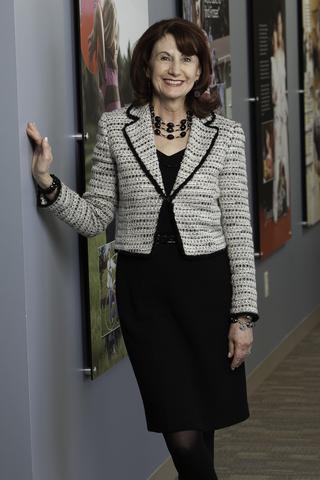
culled from:bizjournal.com
Just two weeks into her new job as the CEO of Fraser, the bookkeeper knocked on Diane Cross’s door and told her that the company didn’t have enough money to make payroll.
And that wasn’t the only problem for the nonprofit that provides health care, education and housing to children with special needs in Minnesota: The roof of Fraser’s school was leaking, the state was shutting down the organization’s group houses, and the county wanted to shut down its school.
“I started here in 1989 and quickly discovered that we were in a small boat taking on water,” Cross said in a phone interview. “I was afraid to pick up the phone. My hand would shake when the phone rang. It never seemed to be good news.”
Diane Cross, now 63, came to Fraser in 1989 after the organization’s board recruited her from Courage Center, a larger, more successful nonprofit with a similar mission in Minnesota.
Cross was the director of medical rehabilitation and education at Courage Center and had a budget three times the size of Fraser’s, which was about $1.5 million. Cross had no plans to leave Courage Center, but Fraser’s board told her that she could have more time at home with her two young sons if she took the offer, so she accepted.
“My husband now says, ‘When you saw more tape than actual carpet on the ground, didn’t an alarm go off?'” Cross said. “We were bailing water as fast as we could. I actually slept in my office in Richfield. I couldn’t afford the time to drive back and forth.”
She soon realized that she had her work cut out for her to save Fraser, even though that meant less time at home with her family.
“I knew it had a great reputation and a staff that was so dedicated,” Cross said. “I said, ‘OK, we have to fix the leak.’ I had three strategies.”
The first strategy was simple — spend less money. Cross went out and renegotiated every expense or contract the company had. She even told the milk man they couldn’t afford his services anymore.
“I had to let the janitor go, so the staff and I took turns being janitor,” Cross said. “We froze salaries and asked everyone not to take paid time off. We really nailed down what we could do with a lot less.”
The second strategy was to bring in more cash. Fraser’s founder, Louise Whitbeck Fraser, opened the school for disabled children in her home in 1935 and became a pioneer in special education. But she didn’t believe in fundraising.
Because of that, Fraser had never done any fundraising and had no staff dedicated to the task. So Cross went out herself and asked people for donations.
“When I went out asking for money, people didn’t know the desperate needs we had,” Cross said.
The last strategy was the most challenging: developing a solid plan to serve Fraser’s future. To do this, Cross reconsidered Fraser’s mission and wondered if its services were still needed. A lot had changed since it was founded in 1935. Back then, the school primarily served children with Down syndrome. But as she took the helm more than five decades later, Cross realized Fraser would have to offer even more services and options, despite the lack of funds.
“I would go to the staff and say, ‘We have to plan our work and work our plan,'” Cross said. “We have to grow our way out of here. I knew there was a huge need for our services. I said, ‘We need to do more,’ and I got a lot of pushback from the staff. They said, ‘Easy for you to say. You come from a big organization with lots of resources.'”
Because she was new, Cross had to earn the trust of her staff before her visions could become a reality. She had big ideas, but she needed her team on board.
“Humility is a virtue. You can have the greatest vision, but if people feel like you’re a prima donna or have a big ego, they’re not going to follow you anywhere,” Cross said.
That approach worked well. Fraser ended the 1989 fiscal year with a deficit, but they haven’t been in the red since then. Cross is celebrating her 25th anniversary with Fraser this year, and the company now has an expected annual revenue of $36 million for the year and 1,000 employees.
Fraser now serves children and adults with more than 60 types of mental and physical disabilities and is the state’s largest provider of autism services. And today, the Fraser School provides child care and early childhood education for young children with typical and special needs.
“When I first started, I wasn’t so sure I made the right decision being at Fraser,” Cross said. “But it ended up being my calling in life.”








